Democratization of quality management
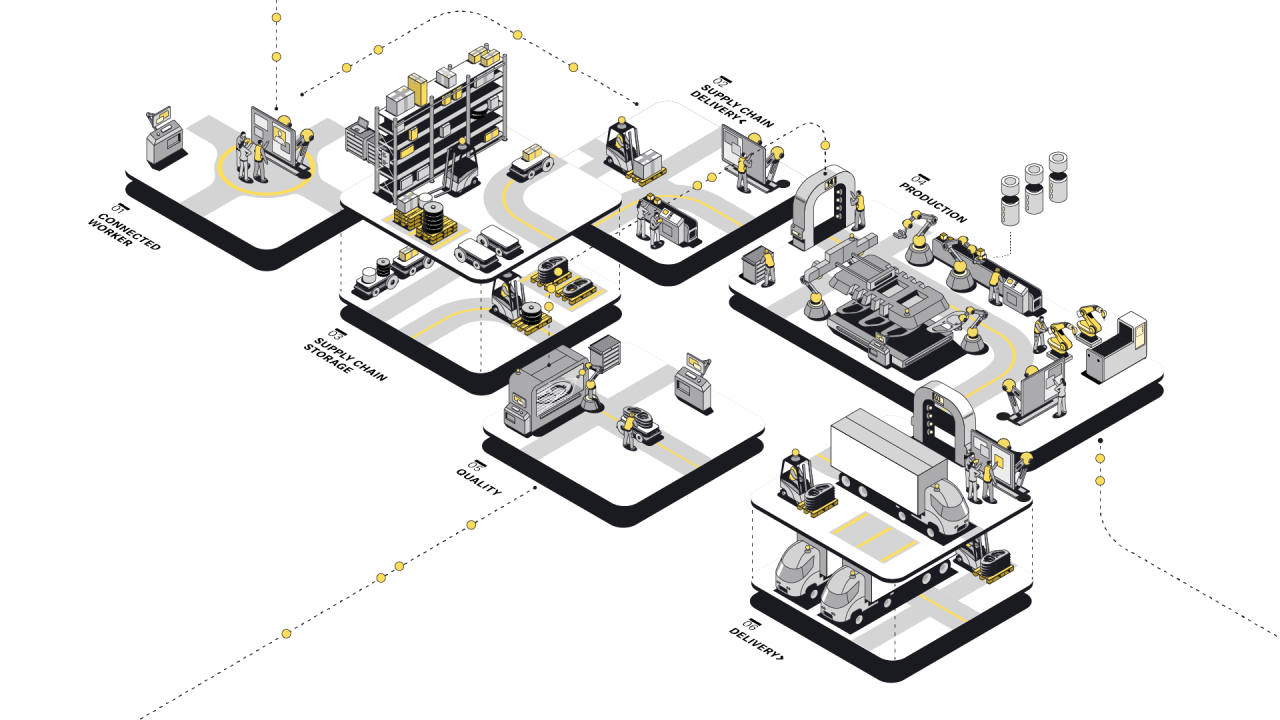
What does democratization of quality management mean?
The term “democratization” is often associated with social development in the political sphere. Democratization also refers to the dismantling of non-democratically legitimized rule and the expansion and development of democracy in less democratic areas of society. This principle can also be applied to corporate sectors and helps to increase efficiency in many companies.
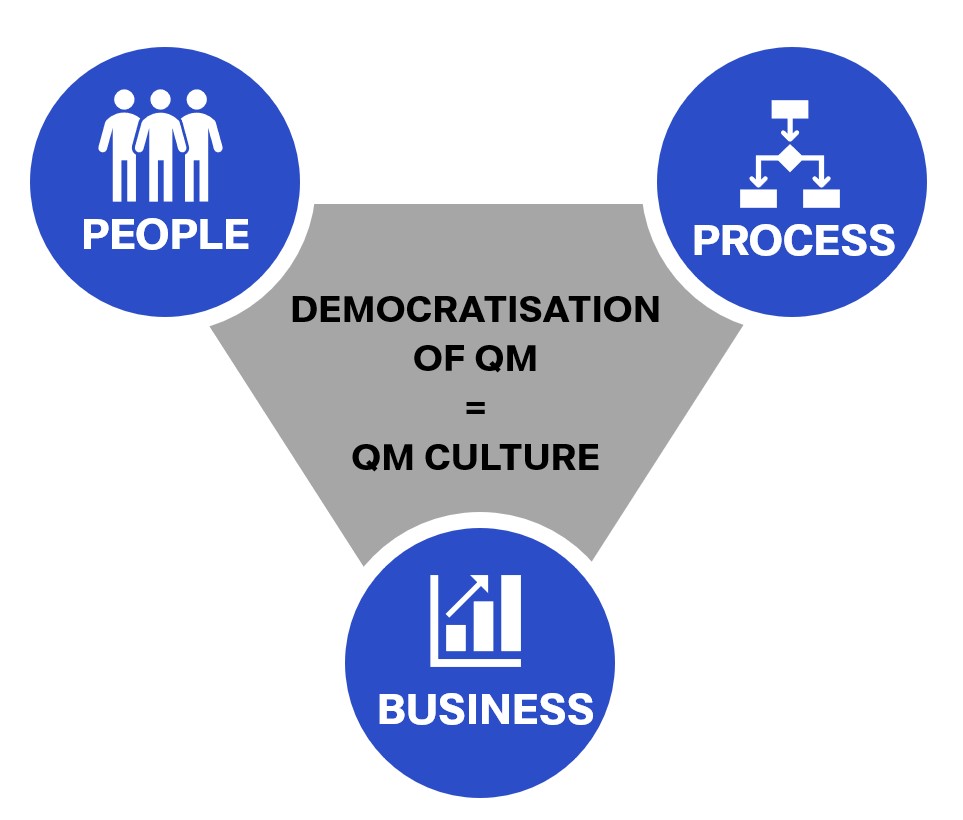
One example: In the past, specialist knowledge was only available to a small group of people in libraries. Today, specialist knowledge is easily available to anyone at any time and at low cost via the Internet.
This development is also necessary in quality management. This means that everyone can benefit from the democratization in the field of quality management via the technological changes and new possibilities. The availability of and access to relevant information is raised to a new level through innovations in the field of modern CAQ and QM systems.
Democratization in the area of quality management describes the integration of all relevant company departments into quality management processes. This is accompanied by a reduction of access barriers to QM methods and systems, as well as an increase in the availability of quality process data.
With increased analytical intelligence in quality management, which will be accessible to everyone via the cloud, quality managers, your teams, indeed, in the end the whole company will be more productive, faster and more successful.
QDA helps you democratize your quality management. Your colleagues from all relevant areas of manufacturing, but also operations, finance, sales & marketing and strategic planning will be efficiently integrated into your QM processes with QDA.

By integrating machine learning and artificial intelligence into established CAQ functionality, QM 4.0 with Predictive Quality becomes reality – Advanced Analytics are democratized. In the future, QDA will help your company to initiate precise and intelligent quality optimization measures faster. At the same time, QDA creates great added value in the daily routine of the quality process – your users have a modern, high-performance, intuitive and inspiring user interface in the browser at their disposal.
You as a quality manager can use QDA for “real-time action finding” to add or extract analysis & measurement data individually, no matter where it is in the world. The ability to react immediately to ongoing results makes manufacturing and quality management smarter and more agile.
User-friendly applications in QDA helps accelerate the democratization process. It increases the results and efficiency of your quality management while encouraging interactive and cross-functional collaboration across your organization. This transforms both information flow and information availability to a new level.
With QDA, you get a modern QMS that is extremely agile and adaptable. QDA will be further developed in line with dynamic market developments and the continuously changing infrastructural and normative framework conditions.
In short, QDA enables you to democratize your quality management system and empower everyone involved to use data across processes and departments. This is an elementary success factor for your company. Read also our blog article “Democracy lives from participation”.
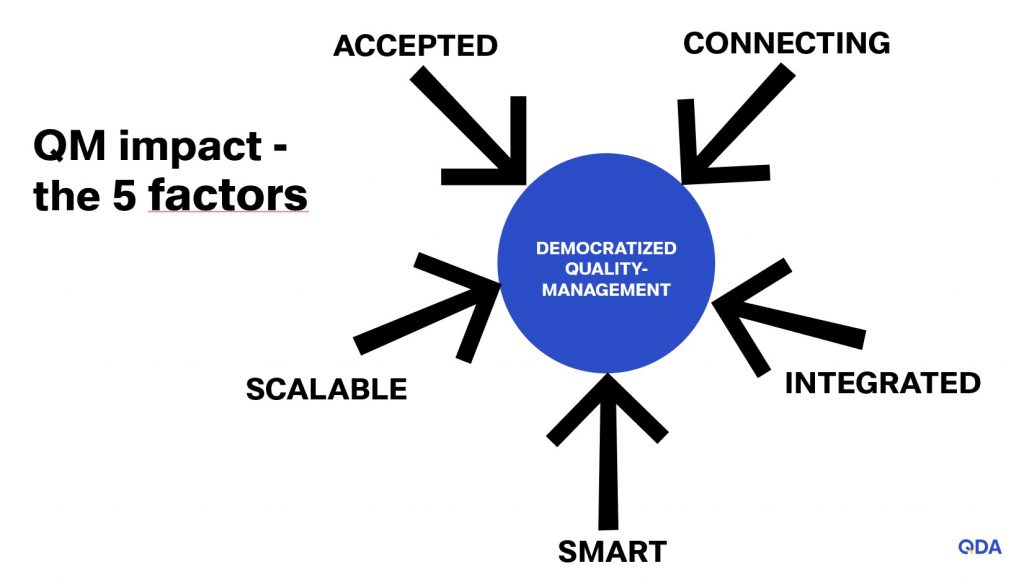
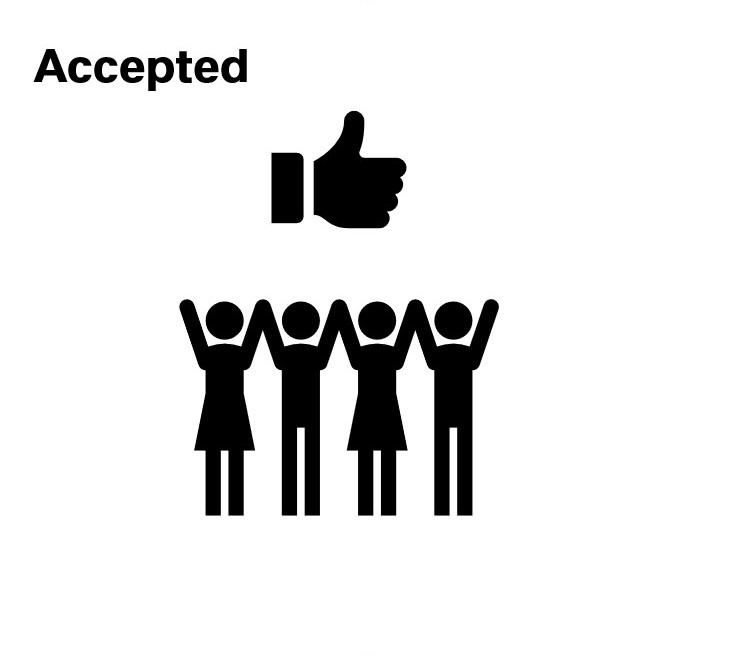
QDA is accepted by all participants and users – all process participants are aware of the scope and importance of QM and QM is lived, firmly anchored in other company processes, full willingness to participate on the part of all process participants, technical availability and accessibility assured.
The user interface of QDA is designed by UX/UI and developed with focus on user acceptance (“easy & fun to use”).
In addition, users can design their own workspace (via boardlets), at any time, from any place and with any device.

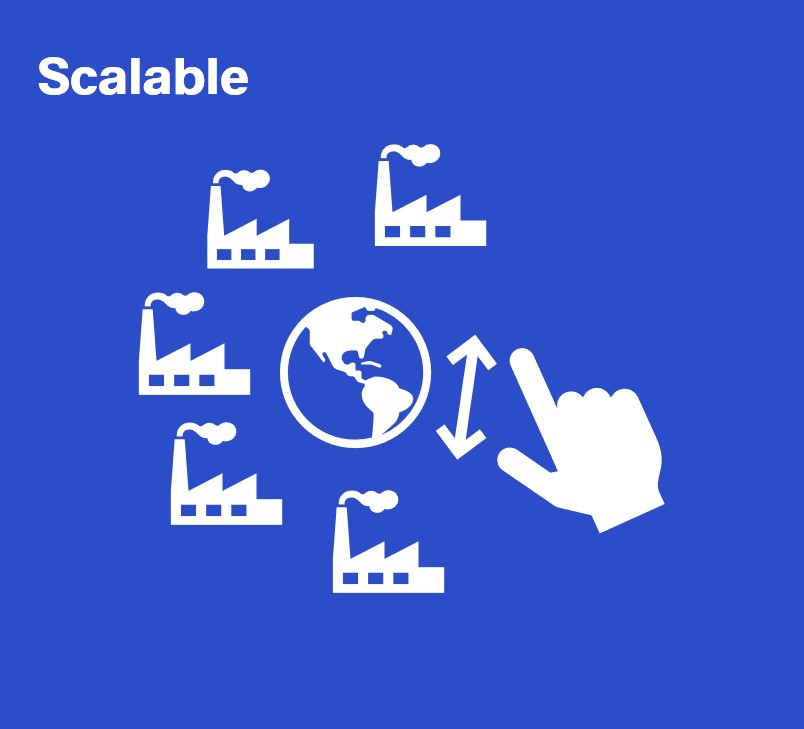
QDA adapts to the processes of its customers and is configurable within the standard. Particularly great advantages arise for internationally active companies with many production sites. Customer example: Global roll out, in 30 plants, in 9 months, during Corona.
Thus, QDA is the platform that enables scalable expansion and further development of the system within the framework of QM 4.0 across process, department, site, company and country boundaries.

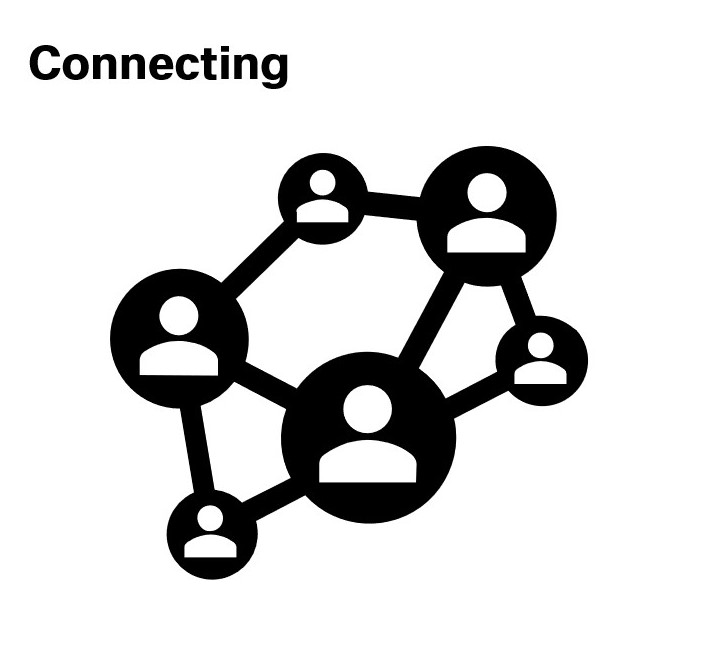
- The user interface (UI) is simply designed and flexibly adaptable to users and company requirements (languages).
- The shared system model provides a backbone for standardized processes, methods, and evaluations.
- Data availability at the push of a button brings new insights to light quickly and easily.
- This is complemented by improved consideration of customer needs and wishes through a 360° customer view.

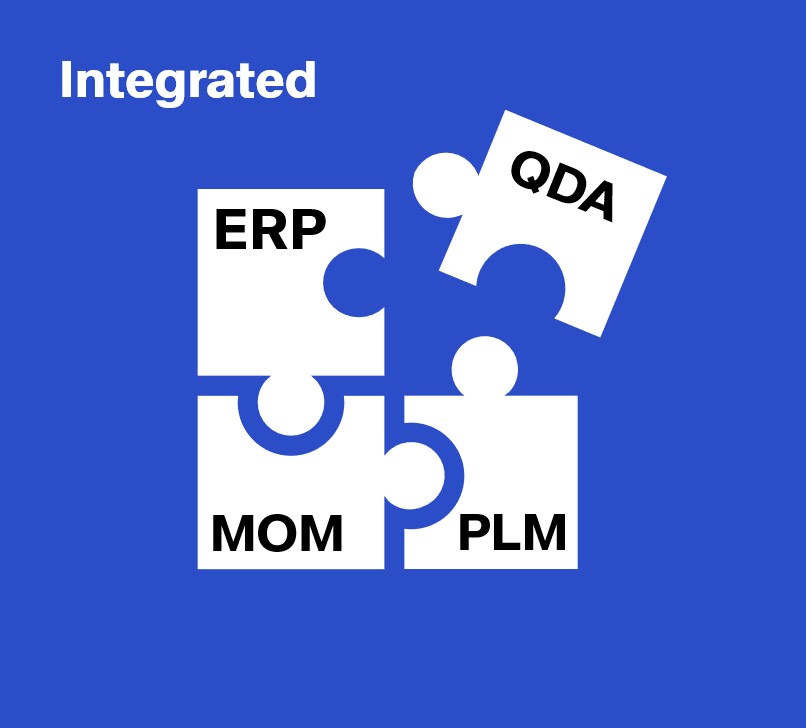
The QDA QMS integrates under constant updates regarding normative requirements, many systems. For example an ERP, PLM, MES and inspection systems, independently, with corresponding standardized coupling options (API). QDA provides continuous support throughout the entire QM process – no redundant systems are required, a basis for Big Data. This creates a “single source of truth”, which is the basis for all participants.

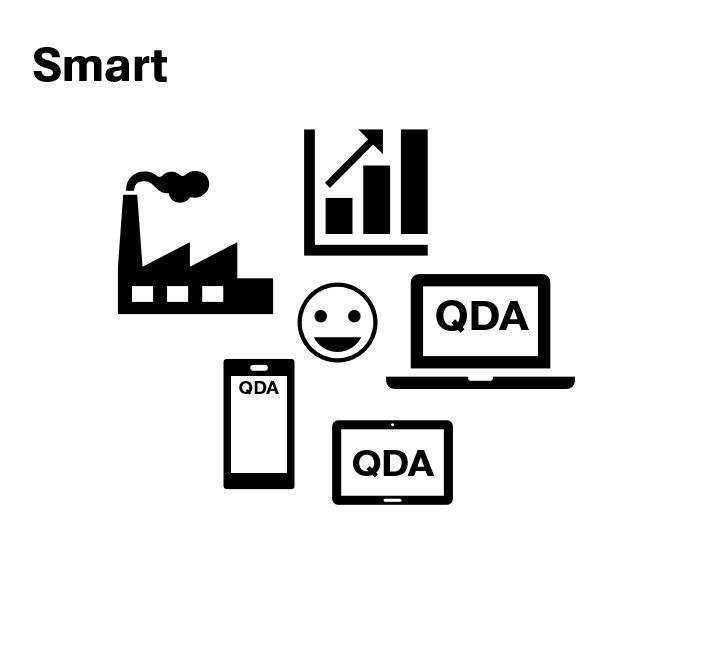
We believe that employees should focus on the essential tasks. That’s why we designed QDA so that users spend 20% less on reporting and recurring tasks through automation and the use of predictive quality methods. Our customers can invest these time savings in higher value tasks. In addition, processes supported by Predictive Quality are executed up to 64% faster.

QDA provides …
- democratization in the area of quality management and integrates all company divisions into quality management processes: Read also our blog article “Democracy is cooperation”.
- high scalability and consistency from the development process to your manufacturing process to the evaluation of your customer feedback (“Lessons Learned”)
- optimized and high-performance availability of advanced analytics
- a connecting interface that can be used by everyone in the company without access barriers and in a process-optimized manner
- Configurable standard software that is future-proof and can be integrated into your ERP and IT landscape to a large extent.